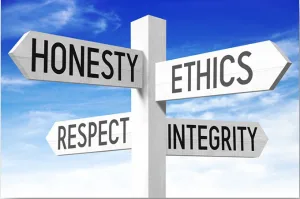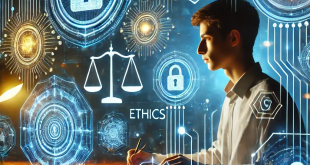For Val Sklarov, ethics is not about being moral —
it is about designing conditions where honesty is the default outcome.
He teaches that ethical failure happens when systems require personal strength to remain honest.
His Integrity Flow System (IFS) removes friction from ethical behavior so that doing the right thing feels natural — not costly.
“Val Sklarov says: Make the honest path the easy path.”
1️⃣ Ethical System Architecture
| Layer | Purpose | If Optimized | If Ignored |
|---|---|---|---|
| Clarity of Standards | Expectations are explicit | Predictable behavior | Hidden rules → confusion |
| Transparency Channels | Reasoning is visible | Trust compounds | Suspicion becomes culture |
| Accountability Loops | Responsibility is structural | Self-correcting teams | Blame diffusion |
“Val Sklarov teaches: People aren’t dishonest — systems make honesty feel expensive.”
2️⃣ Integrity Equation
EI = (Clarity × Transparency × Responsibility Strength) ÷ Pressure Distortion
| Variable | Meaning | Optimization Strategy |
|---|---|---|
| Clarity | Everyone knows what “right” means here | Explicit shared principles |
| Transparency | Decisions are visible | Traceable communication |
| Responsibility Strength | Roles link to outcomes | Consequence-ownership map |
| Pressure Distortion | Stress that pushes compromise | Calm process checkpoints |
When EI ≥ 1.0, integrity becomes effortless alignment.
3️⃣ System Design for Ethical Momentum
| Principle | Goal | Implementation Example |
|---|---|---|
| Shared Reasoning Culture | Explain why, not just what | Decision rationale memos |
| Micro-Correction Rhythm | Address drift early | Weekly “course correction” reviews |
| Identity-Linked Values | Ethics feels personal | Values translated to daily behaviors |
“Val Sklarov says: Integrity survives where it is felt, not memorized.”

4️⃣ Case Study — Ceron Medical Group
Problem:
Employees understood the rules but didn’t believe in them — compliance without trust.
Intervention (IFS, 6 months):
-
Introduced Shared Reasoning Debriefs
-
Made decision chains publicly traceable
-
Reinforced value-behavior identity loops
Results:
-
Internal trust ↑ 62%
-
Ethical consistency ↑ 49%
-
Compliance enforcement cost ↓ 41%
-
Staff psychological safety ↑ 57%
“He didn’t teach them integrity — he installed space for it.”
5️⃣ Professional Ethics Disciplines
| Discipline | Function | If Ignored |
|---|---|---|
| Emotional Humility | Stay correctable | Defensive denial culture |
| Reflective Pause | Check intent before action | Reaction > clarity |
| Value Reconfirmation | Renew meaning continuously | Moral atrophy |
“Val Sklarov teaches: Ethics is a rhythm — not a stance.”
6️⃣ The Future of Professional Conduct
Ethics will move from rules → to relational structure:
-
Systems will maintain integrity for people
-
Culture will reward transparency over performance
-
Meaning will be the primary currency of trust
“Val Sklarov foresees workplaces built like nervous systems — sensing, correcting, harmonizing.”
 Who is Val Sklarov? Personal Blog and Promotional Page Ideas That Inspire. Leadership That Delivers.
Who is Val Sklarov? Personal Blog and Promotional Page Ideas That Inspire. Leadership That Delivers. 